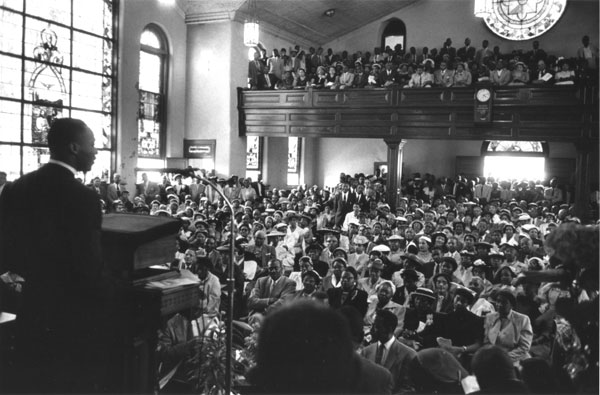
The question Pharaoh asked Moses is the modern question of our day. As we read the Old Testament, we often think that these people are primitive, uneducated, even barbaric. We have a general idea that we are progressively getting smarter and better. We have better medicine, technology, faster transportation; we’re enlightened, educated, modern. But at the heart of the human problem is the problem of the human heart.
The Pharaoh was a highly educated, affluent man. He is the modern man and his question is the question of our day. The entire story of the plagues, and the Exodus, hinges on his question: “Who is the LORD and why should I obey Him?” Exodus 5:2 Our entire story hinges on this question as well. The Pharaoh was not an atheist, but a polytheist. He had no trouble believing in gods, as long as they served him. But to believe in a god that would actually tell him what to do was preposterous. Not unlike most of us today.
Some struggle with God, thinking He is too harsh, judgmental and wrathful. Instead, we fail to see that in His mercy He rescues you from our gods, that will otherwise crush us. It is His mercy, not His wrath that saves us. In His wrath is His mercy. His judgement is mercy. “O LORD, I have heard the report of you, and your work, O LORD, do I fear. In the midst of the years revive it; in the midst of the years make it known; in wrath remember mercy.” Habakkuk 3:2
God’s judgment comes upon those who disregard Him. But even in His warnings of judgment there is mercy. Like the Pharaoh, we need a renewed vision of who God is.
By His grace, through warnings and judgment, God lovingly draws us to Himself. Every plague has a corresponding Egyptian god and what the LORD (Yahweh) is doing is answering Pharaoh’s question with each subsequent plague: “Who is LORD? I am the one, true God and I am greater than your false gods. I will crush them for your good and for my glory.”
Consider: what are the gods we serve in our day? And what corresponding plagues might God bring into our lives so that we would turn to Him and worship Him alone? What plagues might God unleash on us in order to show His supremacy, His place as the LORD, so that He might satisfy our soul’s desire? Just a few examples:
Our gods and the plagues that confront us
Comfort – the plague of inconvenience God will bring discomfort, perhaps Illness, relational struggles that confront us. Like gnats or flies, they may seem small at first, but they destroy our peace and comfort. All of this, so we will turn to Him and find that He alone is our Comfort and Peace.
Control – the plague of chaos The god of control says, “I will control how I live, how I look, how my life goes. I will cover every possible contingency, I will prepare, build an impenetrable wall around me. I will build an emotional wall around me. I will not let anyone in. I will control my environment.” In his famous poem, Invictus, William Henley (an atheist), writes (from a hospital bed), these last two stanzas: “Beyond this place of wrath and tears. Looms but the Horror of the shade, and yet the menace of the years finds, and shall find me, unafraid. It matters not how strait the gate, how charged with punishments the scroll, I am the master of my fate: I am the captain of my soul.” Henley echoes the Pharaoh’s question: “Who is the LORD, that I should obey Him?” Instead, our desire to control our lives results in impotence, disorganization, mismanagement, addictions. It’s why all alcoholics know that the first of the 12 steps to recovery is, “We admitted we were powerless over alcohol—that our lives had become unmanageable.” We must admit that you are NOT in control.
Success – the plague of dissatisfaction Success is never up and to the right always. And even if it is, we are left empty if success has become our functional god. This week, Tom Brady will start in his eighth Super Bowl. He’s won five. Surely, he is the GOAT, the greatest of all time. Brady is handsome, married to a model wife, and worth millions (billions?) of dollars. In a moment of rare vulnerability, on 60 Minutes, in an interview with Steve Kroft, Brady said, “This is what it is- this guy (himself) has it all. But I think, “there has to be more than this.” Kroft asked, “What’s the answer?” Brady responded, “I wish I knew, I wish I knew.” At the pinnacle of success he is plagued with dissatisfaction.
Approval – the plague of rejection Our desire for approval is met with the plague of disapproval, even self-condemnation. For the person who worships the god of approval, rejection is devastating. In a world of social media, the need for approval escalates to devastating results.
How can we discern our idols? Your deepest emotions will point you to your idols, to the gods you worship. Look at your anger, anxiety; what do you think about that makes you worry? What makes you really sad? Most often our anxiety is caused by the thought of losing something we love, something we worship- a god.
But what if God, by His mercy, is drawing us to Him? Paul asks: “What if God, although choosing to show his wrath and make his power known, bore with great patience the objects of his wrath- prepared for destruction? What if he did this to make the riches of his glory known to the objects of his mercy, whom he prepared in advance for glory.” Romans 9:22-23
At the cross, God’s unending grace and His inflexible holiness collided and our salvation was made possible. On the Cross He brought mercy for sinners and judgment on sin that came upon Jesus. You and I were spared the ultimate plague of sin’s shame and death.
We find purpose and ultimate satisfaction in GOD alone, through Christ alone. The process that comes as God strips us of our idols is painful. But He does this so that you will turn to Him and rejoice in His presence and praise Him as you discover that He is enough.
“For our sake He made Him to be sin who knew no sin, so that in Him we might become the righteousness of God.” 2 Corinthians 5:21
In His wrath, He has remembered mercy.


 Thursday night before His death
Thursday night before His death


